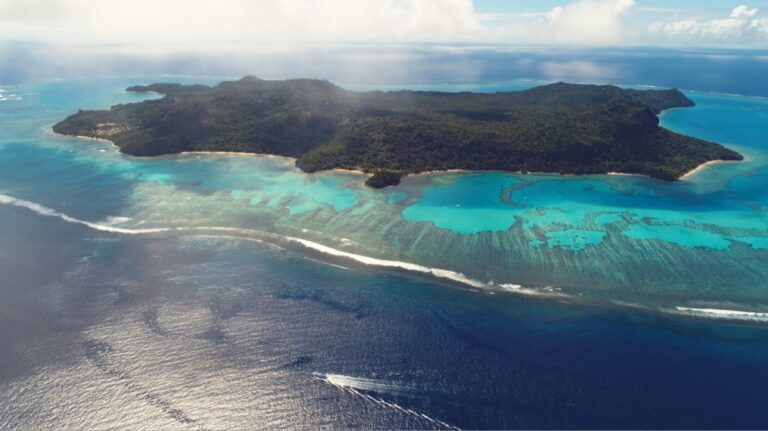© 2011-2025 The Avataric Samrajya of Adidam Pty Ltd, as trustee for the Avataric Samrajya of Adidam. All rights reserved.
Posted September 2020

On Naitauba Island we have a real interest in the health of all residents and visitors.
One of the ways we protect our health is through our medical clinic’s many services—we have long kept a vigil for outbreaks of serious infectious disease, both locally and globally.
It was in January, 2020 that we became aware of a serious virus outbreak in Wuhan, China, and we began tracking the rapidly-changing developments.
We spoke to a number of experts around the world and we learned that protective measures are most effective if enacted early, quickly, comprehensively, and broadly.
Therefore, we decided to start with “hard and fast” protective measures in mid-February. This included a 28-day quarantine (at that time) and the creation of a “bubble” around the island, which addressed all travel to and from Naitauba. We also disinfected dry goods and food that we received from off-island, and implemented a number of other protective programs.
Success in preventing the virus from reaching Naitauba required the cooperative support of everyone on the island. We met regularly with island residents to share information we were learning, and to discuss what was needed and what still needed to be done. It has been inspiring to see how everyone made every effort possible and upheld our agreements in friendship and commitment.
One of the interesting things noticed by people working in the Naitauba medical clinic was that the number of communicable infections due to all causes has markedly reduced, almost to zero, after the quarantine was put in place. We now have first-hand experience that contagion protection measures can be effective and work under the right conditions.
We have great respect for the Fijian government which has been exemplary in utilizing every resource available since the pandemic started.
The prime minister applied early and wide-reaching travel restrictions, night curfews, and set up mobile fever clinics across the islands. He developed a strong educational campaign aimed across Fijian society, and initially began with 28-day quarantines when the world standard was 14 days.
Testing in Fiji is undergoing important growth in the number of tests performed. This had been weighed down by supply-chain limitations and a need for supportive resources. These initial obstacles are also being extremely well-managed and overcome for the benefit of all people in Fiji.
We continue to monitor the COVID-19 pandemic daily, as well as other contagious outbreaks, such as influenza, measles, dengue, and other newly emerging diseases. We use the World Health Organization and the South Pacific Public Health Network among other helpful and outstanding resources. In this way, we are able to adjust our protocols and habits of living in a responsive manner to minimize harm and to optimize the needs of our daily lives.
© 2011-2025 The Avataric Samrajya of Adidam Pty Ltd, as trustee for the Avataric Samrajya of Adidam. All rights reserved.